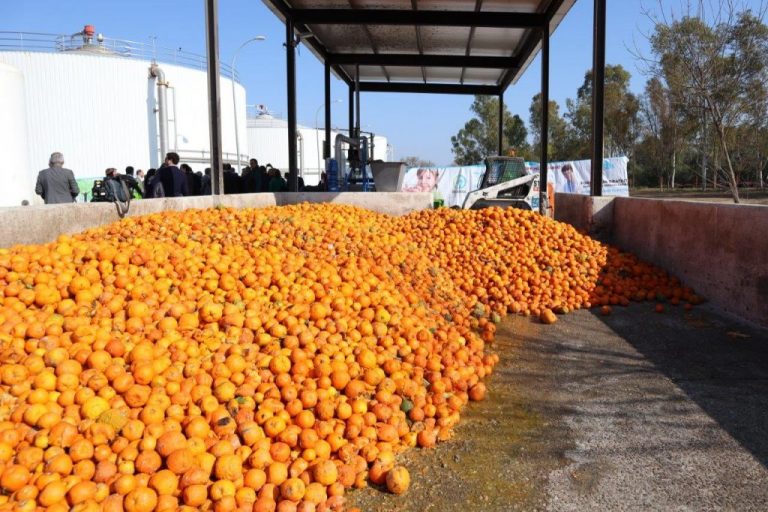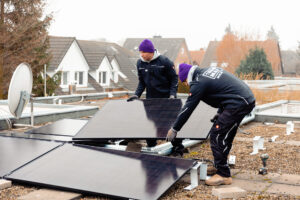Fruit Power: In Spain, Seville Will Produce Electricity From Rotten Oranges

They are juicy, rich in vitamin C, and their color is the same as their name. In Spain’s Seville, the trees where they grow line up the city landscape creating an idyllic tropical atmosphere.
But what happens when these delicious orange balls of delight fall off the branches that hold them? Basically, they just sit there, creating an unsightly mess on the asphalt. Cleaning workers pick them up and the huge amounts of fruit end up in landfills around Seville.
All this, however, is about to change, The Guardian reported. In a pilot project, methane from the oranges currently rotting on the Spanish city’s sidewalks will be used to make clean electricity.
An army of 50,000 orange trees
The Spanish city of Seville in Andalusia is home to some 50,000 orange trees, the highest number in any European city. According to a recent estimate, this year’s harvest will reach 5.7 million kg. Now, 35 tonnes of this amount will be used to generate electricity. The project is led by the local municipal water supply company Emasesa and has been going on for two years now.
[embedyt] https://www.youtube.com/watch?v=_qr4kh34P20[/embedyt]
Methane from fermented fruit for electricity
Methane from the fermented fruits will be used to generate electricity, Emasesa said. The process involves transporting the fruits to a biogas-producing facility at the company’s sewage treatment plant. “The juice contains fructose which consists of very short carbon chains. The energy output of these chains during the fermentation process is very high,” explained Benigno Lopez, head of Emasesa’s Environmental Department. “It’s not just about saving money. Rotting oranges are a problem for the city and we generate added value from the waste,” he said, adding that “the remains of the oranges will be processed to produce fertilizer for the local agricultural fields.
1,000 kg of oranges = 50 kWh of electricity
The electricity produced on-site will initially be used to supply power to Emasesa’s sewage treatment plant. In the future, it will also be fed into the city’s electricity grid. Tests have revealed that 1,000 kg of rotten oranges can produce up to 50 kWh of electricity – enough to cover the daily electricity need of five households. Experts at Emasesa hope that in the future they will be able to process all organic waste produced in the city to supply the local households with clean power. To fulfill these plans, local authorities will need to invest about EUR 250,000 in the project.



























